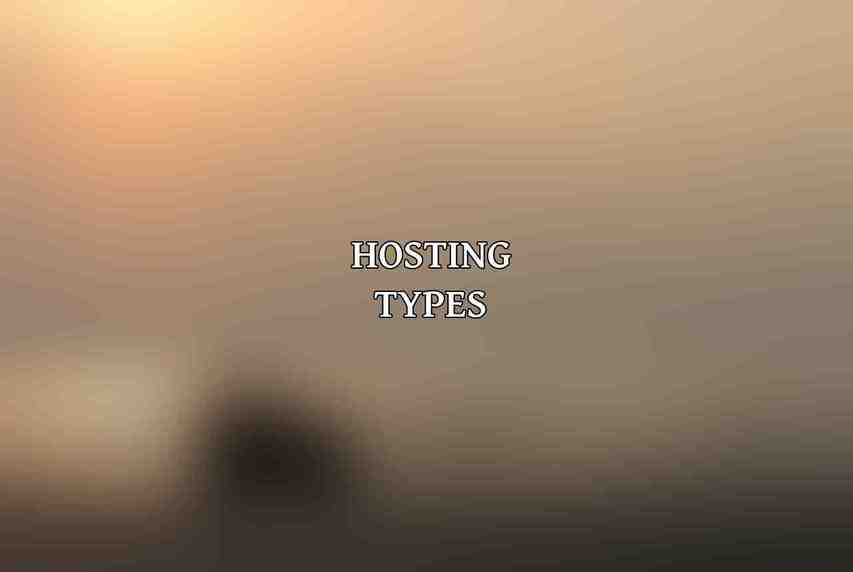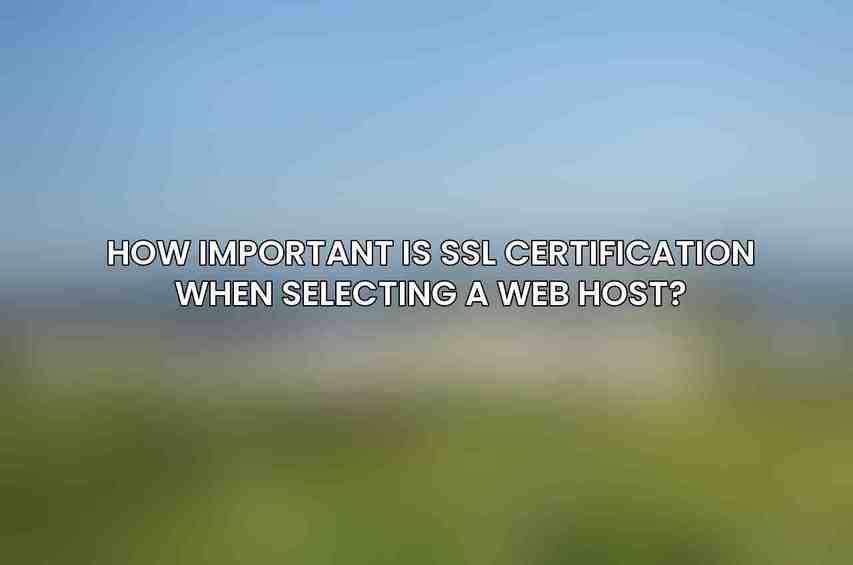Where online presence is paramount for businesses and individuals alike, choosing a secure web host is a critical decision. The security of your web hosting provider can make or break the integrity of your website and the trust of your visitors. Neglecting web hosting security can lead to devastating consequences such as data breaches, loss of customer trust, and even legal liabilities. Therefore, it is essential to carefully evaluate and select a web hosting provider that prioritizes security in 2024.
Importance of choosing a secure web host
The importance of choosing a secure web host cannot be overstated. A secure web host ensures that your website is safeguarded against cyber threats, such as hacking attempts, malware infections, and data breaches. By choosing a reputable web host with robust security measures in place, you can protect your website’s integrity, maintain your visitors’ trust, and uphold your online reputation.
Consequences of neglecting web hosting security
Neglecting web hosting security can have severe repercussions. A vulnerable web host can expose your website to a myriad of threats, including unauthorized access to sensitive data, defacement of your web pages, and disruptions to your online services. Moreover, in this stringent regulatory environment, a data breach resulting from poor web hosting security can lead to costly fines, legal penalties, and irreparable damage to your brand’s reputation.
Key Factors to Consider
When selecting a web hosting provider, several key factors related to security should be carefully evaluated to ensure that your website remains protected and operational at all times.
Reliability
- Uptime guarantees and service level agreements (SLAs): Look for web hosts that offer high uptime guarantees, typically 99.9% or higher, to ensure that your website remains accessible to visitors.
- Redundancy and backup systems: Choose a provider that implements redundancy measures and regular backups to mitigate the impact of any hardware failures or data losses.
- Track record of performance: Research the provider’s performance history and customer reviews to gauge its reliability and ability to deliver consistent service.
Regular Updates
- Frequency and timeliness of security patches: Opt for a web host that promptly applies security patches and updates to protect your website from known vulnerabilities.
- Automatic updates vs. manual application: Consider providers that offer automatic security updates to ensure that your website is continuously protected without manual intervention.
- Support for latest industry standards: Choose a host that stays current with industry best practices and compliance standards to enhance the security of your website.
Security Features
- Firewalls and intrusion detection systems (IDS): Ensure that your web host utilizes firewalls and IDS to monitor and block suspicious network traffic.
- Malware and virus scanning: Select a provider that offers regular malware and virus scans to detect and remove any malicious code from your website.
- SSL encryption and HTTPS support: Prioritize hosts that offer SSL certificates and support HTTPS to secure data transmission between your website and users.
- Multi-factor authentication (MFA): Implement MFA to add an extra layer of security to your hosting account and prevent unauthorized access.
- Web application firewall (WAF): Look for hosts that include WAF protection to filter and block malicious web traffic before it reaches your website.
Hosting Types

When choosing a web hosting type, consider the level of security and control you require based on your website’s needs and resources.
Shared Hosting
Shared hosting is a cost-effective option where multiple websites share resources on a single server.
- Advantages: Affordability, ease of setup.
- Disadvantages: Limited resources, security risks due to sharing server space with other websites.
Virtual Private Server (VPS) Hosting
VPS hosting offers dedicated resources on a virtual server environment with increased security compared to shared hosting.
- Advantages: Dedicated resources, enhanced security.
- Disadvantages: Higher cost than shared hosting, more technical knowledge required for management.
Dedicated Hosting
Dedicated hosting provides an entire server dedicated to a single website, offering maximum security and control.
- Advantages: Maximum security, full control over the server environment.
- Disadvantages: Higher cost compared to shared hosting, advanced technical knowledge needed for server administration.
Cloud Hosting
Cloud hosting offers scalability and flexibility by hosting your website on a network of virtual servers.
- Advantages: Scalability, flexibility, automatic updates.
- Disadvantages: Potential security vulnerabilities due to the distributed nature of cloud infrastructure.
Provider Comparison
To assist in selecting a secure web hosting provider, it is essential to compare the offerings of reputable companies in the industry.
Bluehost
Bluehost is a well-known hosting provider with a variety of hosting options catering to different needs.
- Pros: Wide range of hosting options, free SSL certificates, 24/7 customer support.
- Cons: Limited security features on shared hosting plans, higher prices for premium hosting options.
SiteGround
SiteGround is recognized for its strong emphasis on security and performance, particularly for WordPress hosting.
- Pros: Excellent security features, automatic backups, optimized for WordPress websites.
- Cons: Slightly higher prices compared to some competitors.
HostGator
HostGator is a popular hosting provider offering a range of hosting solutions with attractive features.
- Pros: Unmetered bandwidth, 99.9% uptime guarantee, free website migration.
- Cons: Basic security features on shared hosting, complex user interface.
DreamHost
DreamHost stands out with its commitment to uptime guarantees and user-friendly services.
- Pros: 100% uptime guarantee, free SSL certificates, automatic WordPress updates.
- Cons: Limited storage space, fewer data center locations compared to larger providers.
Tips for Enhanced Security
Ensuring the security of your website goes beyond selecting the right hosting provider. Implementing additional security measures can further protect your website from cyber threats.
- Use strong passwords and enable MFA to secure your hosting account.
- Install a WAF and malware scanner to detect and block malicious activities.
- Monitor website traffic for any suspicious activity that could indicate a security breach.
- Keep your website’s software and plugins updated to patch any vulnerabilities.
- Regularly back up your website to prevent data loss in case of a security incident.
selecting a secure web host in 2024 is a crucial decision that requires thorough consideration of various factors. By prioritizing reliability, regular updates, security features, and the appropriate hosting type, you can safeguard your website against cyber threats and ensure its smooth operation. Additionally, comparing reputable hosting providers and implementing enhanced security measures can further fortify your website’s defenses and protect your online presence. Remember, the security of your web host is paramount in preserving the integrity and trustworthiness of your website in the digital world of 2024.
Frequently Asked Questions
What factors should I consider when choosing a secure web host?
When choosing a secure web host, consider factors such as uptime guarantees, SSL certificates, regular backups, security protocols, and customer support.
How important is SSL certification when selecting a web host?

SSL certification is crucial for website security as it encrypts data transmitted between the user’s browser and the server, preventing hackers from intercepting sensitive information.
What is the significance of regular backups in web hosting security?
Regular backups ensure that your website data is safe and can be restored in case of a security breach or data loss. Look for web hosts that offer automated backup solutions.
What role does customer support play in web hosting security?
Customer support is important for resolving security issues promptly. Choose a web host that provides 24/7 support through various channels like phone, email, and live chat.
Should I opt for a shared hosting, VPS, or dedicated server for better security?
Shared hosting is more vulnerable to security threats due to multiple websites sharing the same server. VPS and dedicated servers offer better security as you have more control over server resources.

